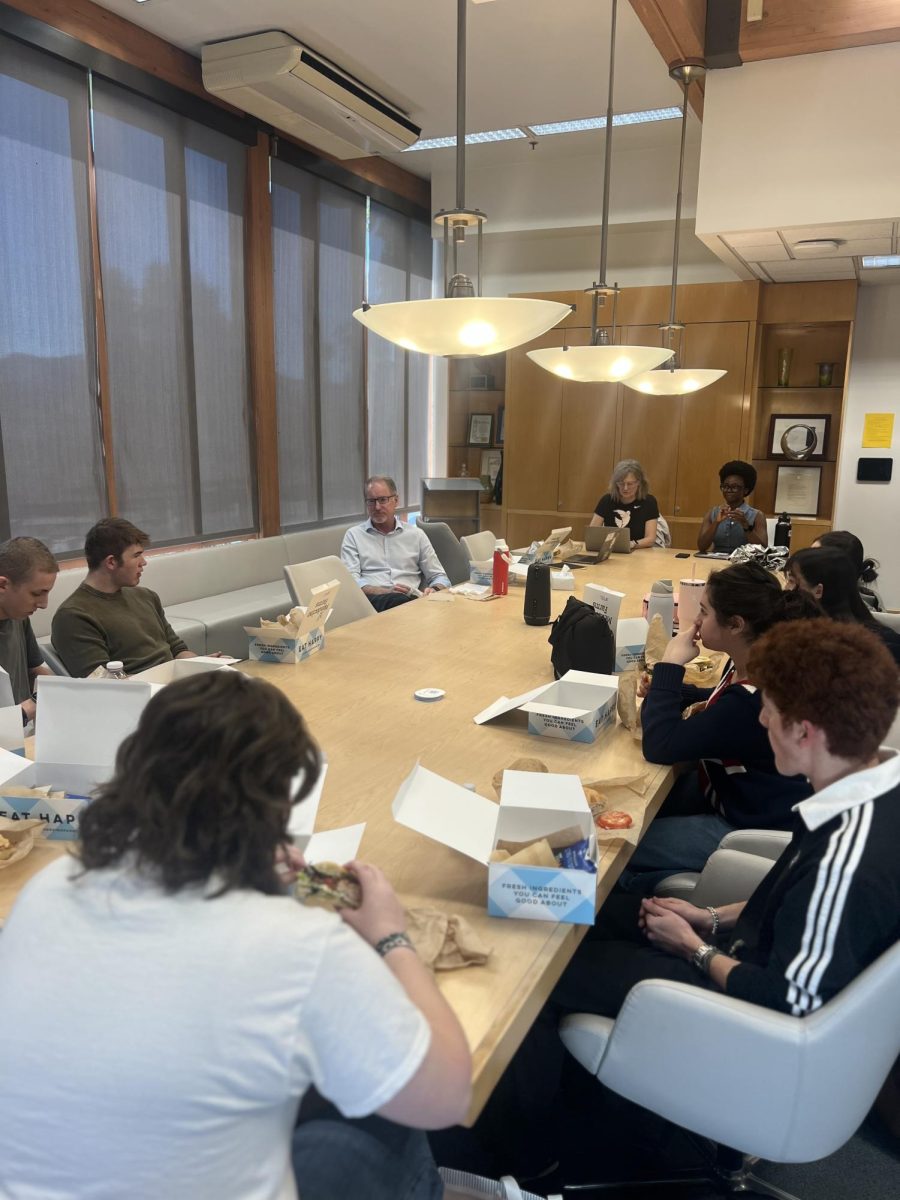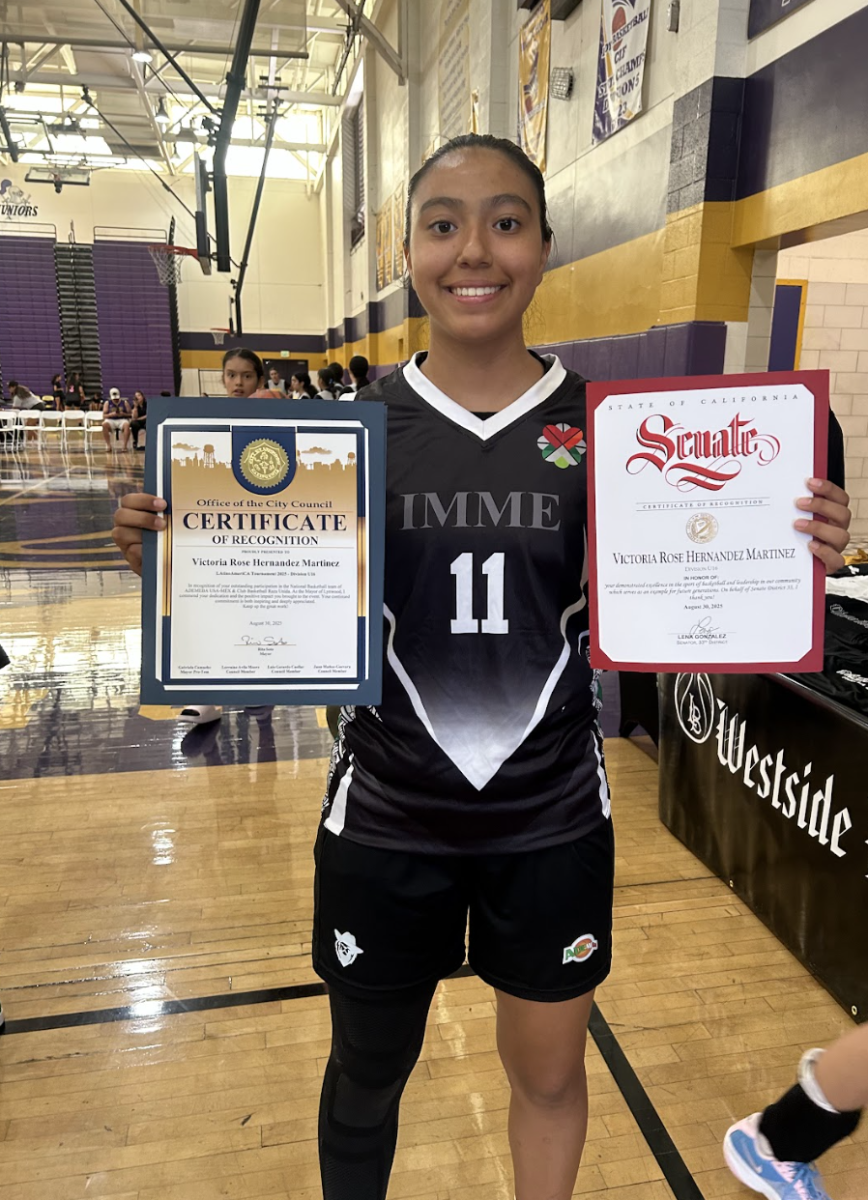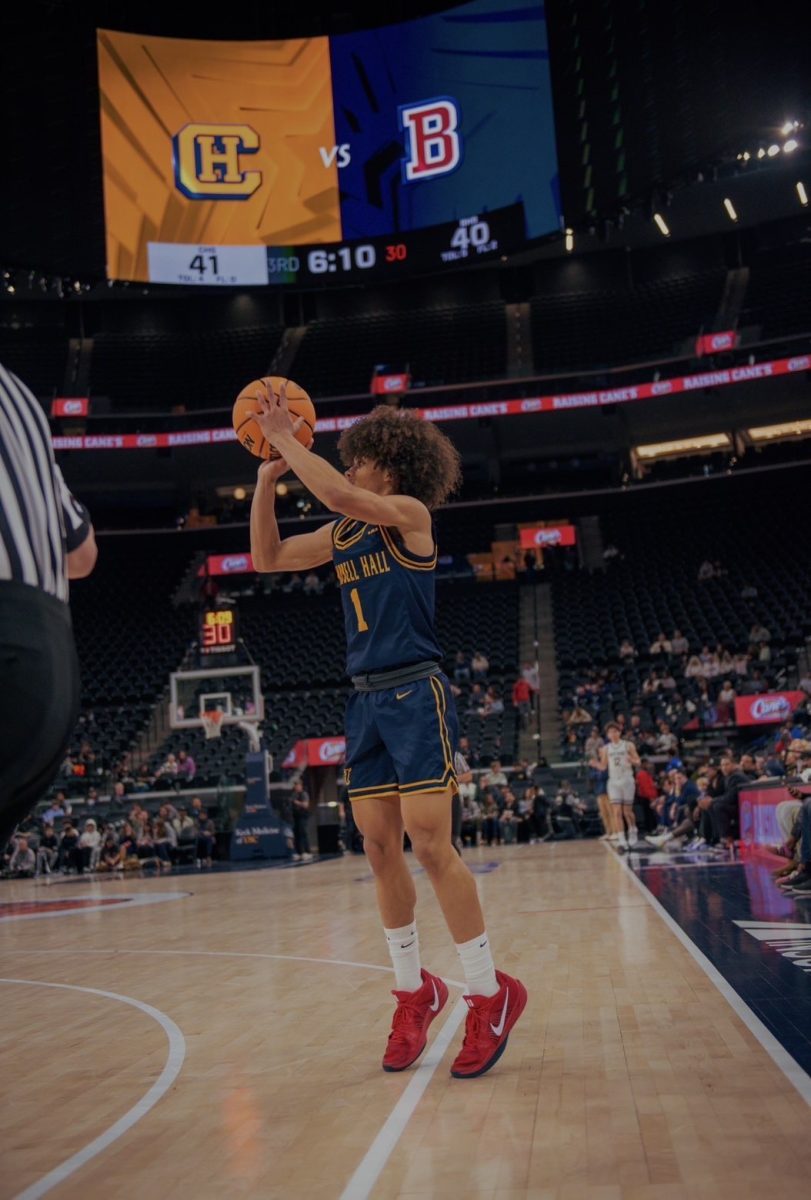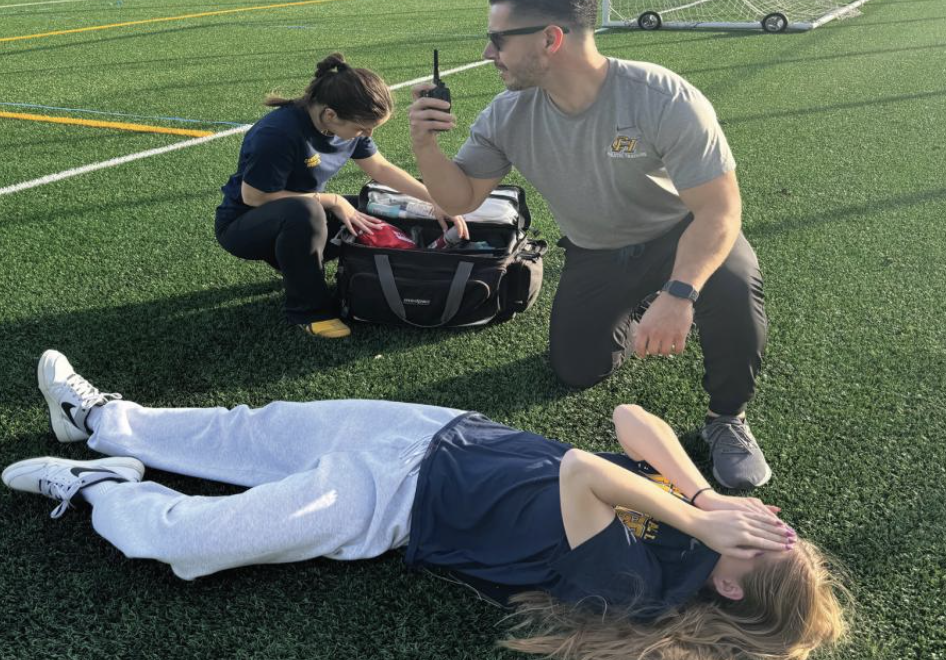Comparing grades with others, obsessively checking Powerschool, losing sleep over test day and suffering anxiety when test day comes. Negative habits can form in those who struggle with the idea that grades are the metric by which their success is measured. Now, students and teachers are rethinking that narrative.
Although Charlotte C. ‘28 thinks her academics are important, she splits her time equally between school and basketball. As a first-year varsity player and club player since 2021, she feels she lacks time for anything else. Even though she considers herself a grade-motivated student and takes her good grades as a measure of success academically, she doesn’t use her grades to define other aspects of her life.
“If you don’t have good grades, then you can’t do a lot of things if you want to go to college,” Charlotte said. “So, grades are really important. [At the same time], I am who I am, and I don’t really hide anything, so my grades aren’t going to define who I am in the long run, because there’s so much outside of that.”
Eli R. ‘26 values his grades, as he believes that they reflect his understanding and effort in a class. He has always felt that math and most sciences come easy to him, but he must work harder in the humanities to achieve the grades he desires. Because of this, his grades in those classes mean more to him than his others.
“Grades are really important to me because I work for them,” Eli said. “Getting a grade for one person can take less effort than for another person. I think that an A for one person and another person represents a pretty similar level of understanding, but it depends on how much work you have to put in to get that grade.”
According to Ethan Hutt’s August 2023 University of North Carolina article, grades and tests have become a focal point of a student’s value instead of a tool to support students. 11th-grade dean Dr. Carlos Castellanos witnesses these values play out every day. As a dean, Castellanos wants to guide students through challenges and help them succeed. He understands that students have a wide range of needs that must be met for them to thrive at school. Students can have learning differences, trauma, or experience loss, and Castellanos feels it is his responsibility to help students adjust so they are able to achieve their goals. He believes that good grades can lead to certain versions of success, however they are not always the main focus.
“[Grades] matter to an extent, but it becomes toxic when we start placing personal value on the grades,” Castellanos said. “I’m kind of torn with grades. They’re important, absolutely. You should try to get good grades but…it shouldn’t affect your mental health to an extent where you’re breaking down, beating yourself up [or] comparing yourself to others.”
Henry F. ‘26 places little importance on his grades, seeing high school as only a milestone he must pass to pursue his true interest: art. Although art was a hobby to him for quite some time, he took up a job opportunity with an art gallery in New York, Lux Contemporary, where he had the chance to collaborate with one of his favorite artists, Retna. To Henry, pursuing rigorous academics is not something he personally wants, but rather an expectation placed upon him. Instead, He focuses on doing what he wants instead of what others want for him, an approach he takes to both art and his schoolwork.
“Obviously [I] want people to like [my] stuff, but it’s not the biggest deal in the world if someone doesn’t specifically like a certain piece,” Henry said. “A problem I had when I first signed with the gallery is [that] I was making art for the idea of being sold or being liked by someone. I was killing myself over that because [my] ideas were just very hard [to execute]. I had to realize [that] if I knew what I like, someone else in the world would like it too.”
Grace Greer ‘24, a student at Duke University, was involved in many pursuits at Campbell Hall: student council, the soccer team, multiple clubs and rigorous academics. Although she recalls feeling stretched thin with all her responsibilities, she also knows that she gained meaningful experiences because she was passionate about the things she participated in. In the end, those experiences meant more to her long-term than her grades did.
“When you enter a new environment in college, you’re going to find a lot of people with different values and different interests than you,” Greer said. “You’re going to have to look back at high school and what you did [then] and miss that a little bit because that’s what’s going to remind you a little bit of who you are.”



























